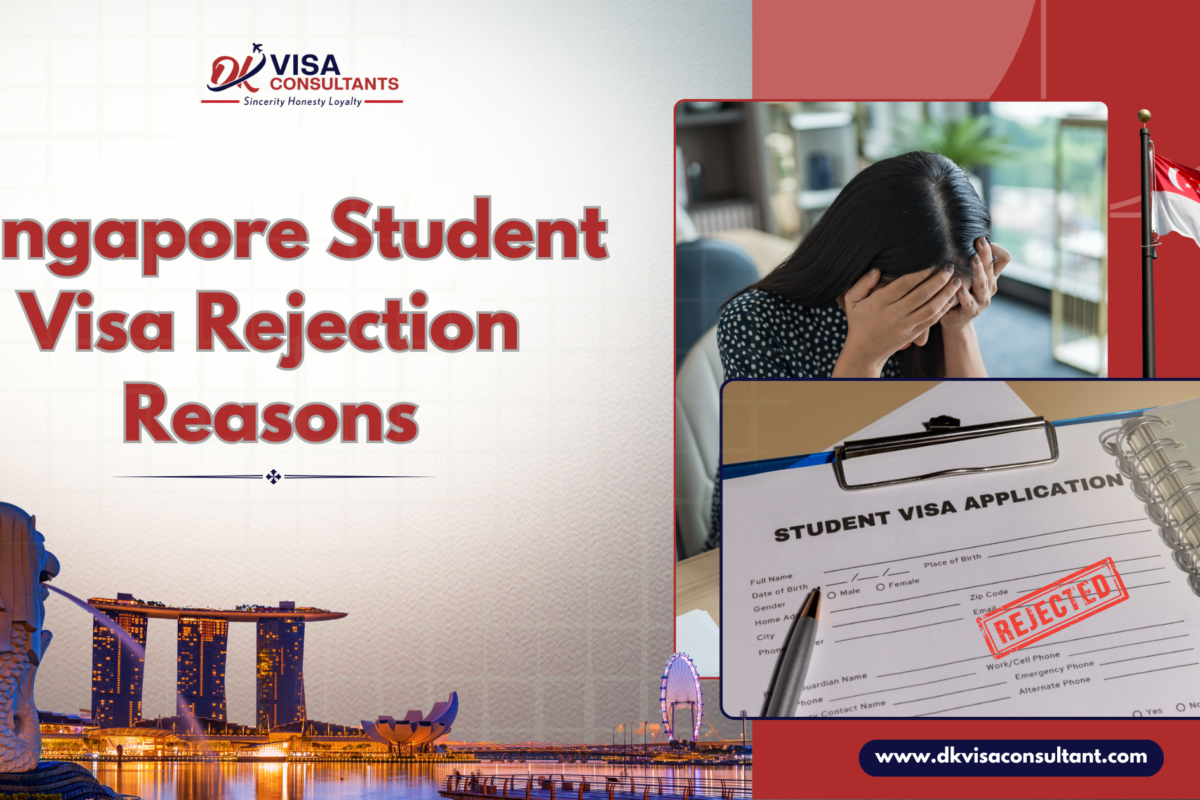When planning higher education in the UK, the decision between private vs public universities in UK remains one of the most important. Understanding how these two types of institutions differ in funding, academic scope, cost, student experience, recognition and support can empower international students to make choices aligned with their goals, budget and career aspirations. With professional guidance from DK Visa Consultant, such decisions become grounded in insight and actionable planning.
This detailed blog will explore the key distinctions between private and public universities in UK, examine implications for international students, provide a checklist for choosing the right type of university, highlight common misconceptions and finish with practical take-aways.
What Defines Public and Private Universities in UK?
To compare private vs public universities in UK fairly, it is crucial to define both clearly:
Public Universities
Public universities in the UK typically receive some degree of funding from government bodies, particularly through block grants for teaching or research. They are regulated by official bodies such as the Office for Students (OfS) in England and have degree-awarding powers under law. Although labelled “public”, they remain autonomous institutions and may rely heavily on tuition revenue, especially from international students.
Private Universities
Private universities in the UK operate without the same level of government funding, instead relying primarily on tuition fees, donations or private investment. There are only a small number of fully private universities in the UK.These institutions remain subject to regulation and must hold recognised degree-awarding powers in order to issue legitimate qualifications.
From this foundation, the distinctions between private vs public universities in UK can be examined in depth.
Key Difference Between Private vs Public Universities
1. Funding & Tuition Costs
One of the most significant differences revolves around how institutions are funded and how that translates into cost for students.
- Public universities receive government funding for teaching and research, alongside tuition income.
- Private universities lack this block funding and therefore often set higher tuition fees to cover operational costs.
- For international students, this means tuition at a private institution may be significantly higher than at a public one. However, cost should not be the only consideration—value, student support and career outcomes matter too.
2. Size, Class Structure & Student Experience
Public universities tend to be larger: more students, more faculties, wider programme choices. Bigger size may mean larger lecture halls, standardised teaching formats and more competition for access to smaller classes or research groups.
Private universities often emphasise smaller cohorts, more personalised teaching, and may offer more flexible or vocationally oriented courses. These features may appeal to students seeking a more intimate learning environment.
Ultimately, class size and student-lecturer interaction vary widely across both sectors—thus, prospective students should review specific programme details.
3. Academic & Research Strength
Public universities in the UK often excel in research, host large postgraduate populations and span a wide array of disciplines spanning arts, sciences, engineering, medicine and more. They may belong to groups like the Russell Group, known for research output.
Private universities may focus on specific fields (for example law, business, arts) and prioritise teaching over extensive research. While that can suit certain career-oriented students, for those seeking major research opportunities or academic careers, a public institution may present stronger infrastructure.
4. Reputation, Recognition & Graduate Outcomes
Degree recognition globally varies by institution, subject and reputation rather than solely by public or private status. Many public universities hold strong recognition due to legacy, research output and alumni networks.
Private universities in the UK may have smaller profiles, but if specialised and well-regulated, they still issue recognised degrees and can deliver excellent outcomes.
For international students especially, the reputation of the institution for their subject area and the strength of its global alumni and employer links matter greatly.
5. Student Support Services & International Student Experience
Support services—such as orientation, visa guidance, accommodation assistance, student welfare, career services—are essential for international students. Larger public universities may have extensive infrastructure, multinational student communities, robust societies and wide networks.
Private universities, by virtue of smaller size, may offer more personalised support and closer faculty engagement. Both models have merits, so students should evaluate the quality of international student support, not just institution size.
6. Cost of Living & Overall Value
Beyond tuition fees, living costs vary significantly by UK city and institution location (London vs smaller towns). A public university located in central London may incur higher accommodation and transport costs than a private institution in a smaller city.
When comparing value, consider: tuition + living costs + support + employability outcomes + student satisfaction. A higher fee at a private university may be offset by excellent outcomes; similarly, a lower-fee public university may incur high living costs or less tailored support.
What This Means for International Students Considering the UK
Budget and Financial Planning
- Review full costs: tuition, living, transport, health insurance (for international students), books and materials.
- Compare private vs public tuition + living cost, and check for scholarships or bursaries.
- Consider return-on-investment: how quickly a graduate outcome can offset initial cost.
Academic & Career Fit
- If the goal is research, academia or an interdisciplinary field, public universities may provide more resources.
- For professional training, shorter, industry-oriented programmes, a smaller private university might better align with specific goals.
- Ensure the programme is taught in a language accessible and examine any prerequisites.
Recognition & Future Mobility
- Evaluate how the degree is perceived by employers in target countries and the strength of the institution’s global network.
- Accreditation and quality assurance are vital—ensure the university holds recognised awarding powers.
- For further education (master’s or PhD abroad), the reputation and research track record may matter more than public/private label.
Student Experience & Support
- A student coming from abroad will benefit from strong orientation, international student offices, mentoring, housing assistance and cultural integration.
- Check whether the campus offers international student associations, alumni networks, industry links, career fairs.
- Consider peer student reviews and university ranking for international student satisfaction.
Location & Lifestyle
- City vs university town: Big city offers more opportunities but higher living costs; smaller town might offer lower cost but fewer social/industry links.
- Proximity to transport, internship opportunities, cultural experiences and job market all matter.
- Private universities with campuses in central or well-connected areas may help connect with industry networks.
Practical Checklist for Evaluation
To make the choosing process effective, here is a detailed checklist:
- Accreditation
- Does the university hold full degree-awarding powers?
- Is it recognised by the regulatory bodies in the UK (OfS, Privy Council).
- Are there any safeguards for international students?
- Cost Breakdown
- Tuition fee for the intended program
- Living costs (housing, food, transport, books) based on region.
- Available scholarships/bursaries for international students.
- Hidden costs (student union fees, lab fees, travel).
- Currency exchange and budgeting for travel home.
- Program Structure
- What is the length of course, language of instruction, mode (full-time/part-time).
- Curriculum relevance, industry linkages, internship or practicum inclusion.
- Faculty credentials, student-lecturer ratio, class size.
- Research opportunities (if applicable).
- Institution Reputation & Outcomes
- International rankings (e.g., QS, THE) and subject rankings.
- Alumni placement rates, employer feedback.
- Global recognition of degrees, mobility for further study.
- Review of graduate success stories.
- International Student Support
- Dedicated international office, pre-departure support, orientation.
- Visa guidance, accommodation allocation, job-search support.
- Student welfare services: health & mental-health counselling.
- Peer networks and multicultural environment.
- Student Life & Location
- Size of student body, campus culture, societies/clubs.
- City cost of living, safety, public transport, external work opportunities (if permitted).
- Part-time work rules for international students, campus job availability.
- Proximity to industry hubs (for internships) and networking events.
- Exit Options & Career Support
- Career services, job placement support, industry links.
- Post-study work visa eligibility (where applicable).
- Alumni network and mentorship possibilities.
- Transparency of graduate outcomes.
Common Misconceptions
- Private always means better
The term “private” does not guarantee superiority in teaching or outcomes. Quality depends on specific programme, faculty, support, and institutional reputation. Both private and public universities may excel or lag depending on context. - Public always means cheaper
While public universities may have government funding, for international students fees are often high, and living costs may offset the advantage. - Smaller private means less recognised
Some small private universities hold excellent specialised reputation and deliver strong outcomes. The key is accreditation and performance rather than size. - Larger public means less student-centric
Although public universities are larger, many have strong frameworks for personalised learning, mentoring and student services. The key is researching the specific departmental experience.
Conclusion
Choosing between private vs public universities to Study in UK involves more than just a label. It is about aligning institution type with academic goals, financial capacity, desired student experience and career ambitions. Public universities provide broad discipline choice, strong research infrastructure and global recognition, while private universities may offer intimate settings, niche programs and personalised support. The right choice depends on the individual profile and priorities.
With informed evaluation, unbiased comparison and expert guidance from DK Visa Consultant, international students can identify the university pathway that truly unlocks opportunity, value and global advancement.
FAQ
Q1. Are degrees from private universities in the UK globally recognised?
Ans:Yes, provided the institution holds proper degree-awarding powers and has accreditation. Recognition depends on specific program strength, employer perception and graduate outcomes rather than simply whether the university is private or public.
Q2. Do private universities always cost significantly more than public ones in the UK?
Ans:Often they do, because private institutions rely more on tuition fees for funding. However, costs vary considerably between universities and include location, programme type and living expenses. Full cost comparisons are essential.
Q3. Does choosing a public university guarantee better job prospects?
Ans:Not automatically. Graduate outcomes depend on the specific institution, program, relevance to industry, student performance and networking. A strong private university with industry ties may deliver excellent results.
Q4. What should international students focus on when comparing private vs public universities in the UK?
Ans:Key priorities should include accreditation, full cost of study (tuition + living), program relevance, student support services, location & lifestyle, and graduate outcomes. Fit matters more than institution category.
Q5. Can a smaller private university offer as good an experience as a large public one?
Ans:Yes—if the private university aligns with the student’s goals, offers strong courses, good international support and good graduate outcomes. Size alone is not the determinant of quality.





